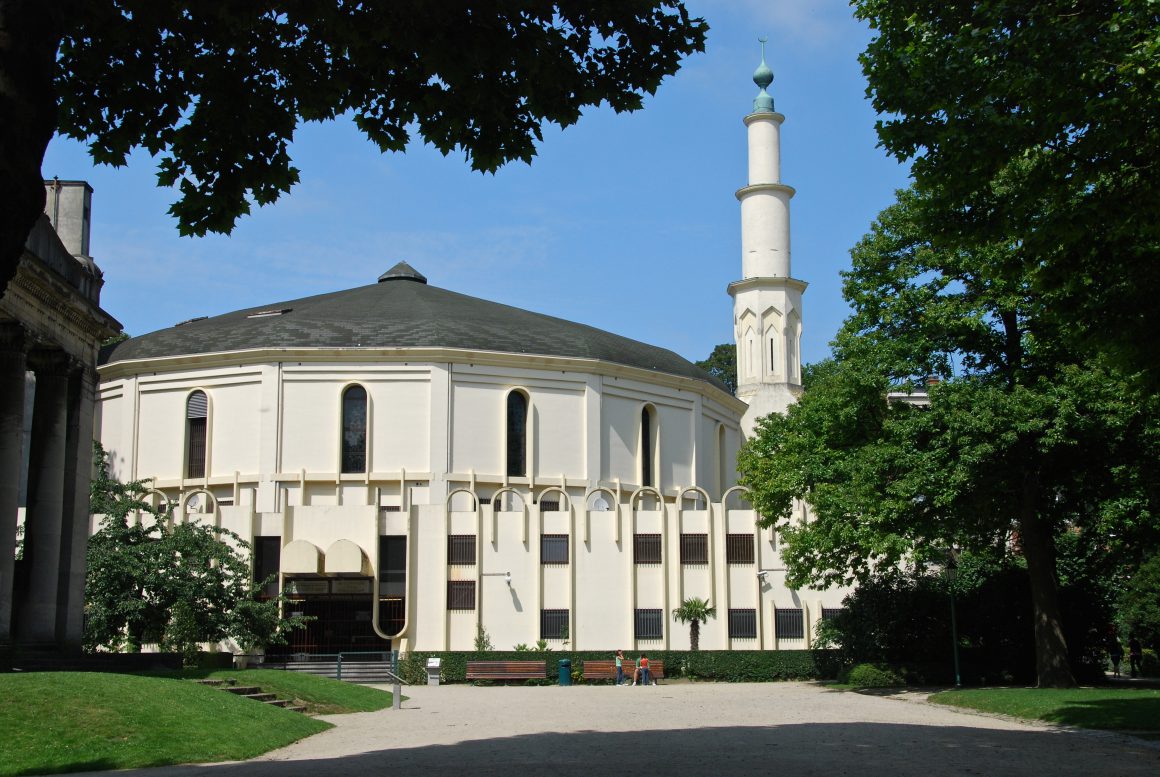This Thursday (June 18, 2015) marks the first day of the month of Ramadan – the ninth and the holiest month of the Islamic calendar.
It is celebrated even by the so-called ‘Ramadan Muslims’ – a slightly derogatory or self-critical labelling for those who are not very observant throughout the year and try to keep up with the tradition at least during the month of fasting. They too abstain from food, drink and sexual activities each day from sunrise to sunset, as a way of spiritual and bodily purification, and increasing their taqwa (God-consciousness).
Naturally, Ramadan is also very significant for the European Muslims. Thousands are expected for the Ramadan opening prayers at the Islamic and Cultural Centre of Belgium (CICB). The building is located in the Cinquantenaire Park in Brussels and is sometimes called the ‘Great Mosque of Brussels’ (pictured above). Curiously, it’s a gift from the Belgian King Baudouin to the Saudi King Faisal during the latter’s official visit to Belgium in 1967.
Once a dilapidated remnant of the so-called Oriental Pavilion built for the national exhibition of 1880, it is now a major centre of the Brussels Muslim community. Also, it is a stone’s throw away from the European Institutions
The medial conflation of ‘Muslim’ and ‘menace’ is currently so ubiquitous in Europe that I needed to think twice before using the proverbial ‘stone’ in the previous sentence. According to a recent poll, ‘terrorism’ and ‘terrorist’ were the most common terms that Britons associate with the word ‘Muslim’. I wouldn’t expect these figures to differ much across Europe. Nowadays, Muslims are Europe’s favourite Other.
Another poll was trending in the social media for weeks. It showed that Europeans wildly overestimate the real proportion of the Muslim population in their countries. (Belgians, for example, estimated it at 29%, while the actual figure is closer to 6% of the total population of the country.) And while these numbers are indeed on the rise in Europe, it is estimated that the symbolic 10% will not be reached before 2030. Fear exaggerates.
Fear also oversimplifies. ‘Muslims are more likely to be terrorists’ is as misleading a statement as the idea that Muslims somehow constitute a homogeneous whole. There is close to nothing similar between the fabrics of society in Saudi Arabia and in Indonesia – two Sunni states.
But while Europeans leaders keep exchanging diplomatic pleasantries and arms deals with some of the worst Muslim autocrats, most public and media pressure is exerted upon law-abiding, tax-paying, and pro-democratic Ramadan Muslims – surely the majority of European Muslims.
This Ramadan comes half a year after the attacks on Charlie Hebdo in Paris, which has only increased that insanely compulsive pressure to justify one’s beliefs, to publicly distance oneself from the fanatics. However, the pressure is also the result of something that has nothing to do with the attacks, namely, of a troubling development in European secularism itself.
“Big universal values – secularism, common rules for everybody, equality between men and women – have become an instrument of discrimination between ‘us’, who adhere to these values, and ‘them’, who do not,” said French philosopher Jacques Rancière in an interview with Le Nouvel Observateur. “Universalism as a principle of coexistence has been confiscated and perverted into a tool of accusation against a specific group.”
But for most of our compatriots belonging to that minority group the coming month will pose ideological struggles of a different kind. They will ask themselves how to combine the fasting with the unadapted working-day duties or, God forbid, with a diabetes acquired along with the Western lifestyle. And whether they should fast according to sunrise and sunset times of the northern altitudes, with their exceptionally long daylight hours – in parts of Northern Europe the sun never even sets in summer – or perhaps according to Mecca times.
Finally, one of the central principles of Ramadan is charity and remembering the poor. And had Turkey been a member of the EU, Ramadan could have strengthened the much-needed European solidarity with the economically-struggling Greece, or so one would hope.
Myself, I am looking forward to the day on which this democratic Muslim country will become a part of the European family. It would be a day for the EU’s motto “united in diversity” to finally become truly merited.



